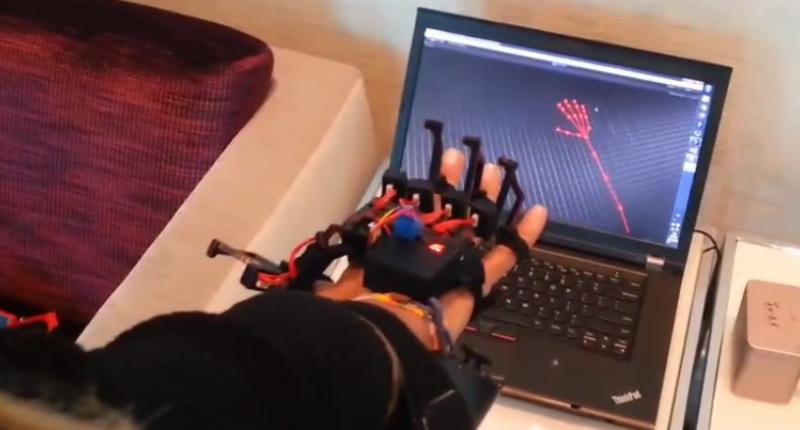South Africa’s retail forex industry is entering a decisive phase as regulation tightens and consolidation accelerates. What does it mean for brokers and traders?
Exoskeleton hand lets you interact with the virtual world

The first thing I thought of when I saw video demonstrations of Dexmo, an exoskeleton hand that uses force feedback to remotely control a virtual hand, is the movie Elysium. In that film, Matt Damon wears an exoskeleton over his entire body that gives him extra-human strength and the ultimate result is free health care for everyone in the dystopian future.
The makers of Dexmo, Dexta Robotics, claim the device can be used for more modest and practical purposes than saving the world Hollywood-style. The self-described collective of “hardcore roboticists” made a demonstration video that shows the virtual hand being used for diverse activities from diffusing a bomb to translating sign language into words on a computer screen.
Uh…but please don’t buy one of these things and try to diffuse suspected bombs, leave that to the professionals, okay? The idea is to demonstrate the dexterity of the device.
While Oculus Rift allows you to “see” the digital world, the engineers at Dexta Robotics think it would be beneficial for you to “touch” the objects in the virtual environment as well, says a company rep in a promotional video. Dexmo allows users to not only manipulate but “feel” digital objects that do not exist.
“We want more people to experience the fun of human-machine interaction,” he says.
Their aim though, is to make human-digital interaction devices accessible and affordable. To launch this product, the company has started a Kickstarter campaign with a goal of raising $200,000, and promise they approach the production phase with more planning and communication with partners than many projects that go south after development and fundraising.
“We can’t guarantee that everything goes perfectly smoothly, but we will certainly try our best to deliver on time,” they write.
It’ll be interesting to see the practical and fun ways accessible virtual technology will affect us. My guess is it will go far in the way of video game playing and have very concrete, meaningful uses for people with disabilities. It could also result in a mass existential crisis resulting in deep reflection. If a virtual object can be seen and felt, is it real? Are we about to enter the Matrix? If so, where can I get one of those cool trench coats?
Article originally published on TechGenMag


